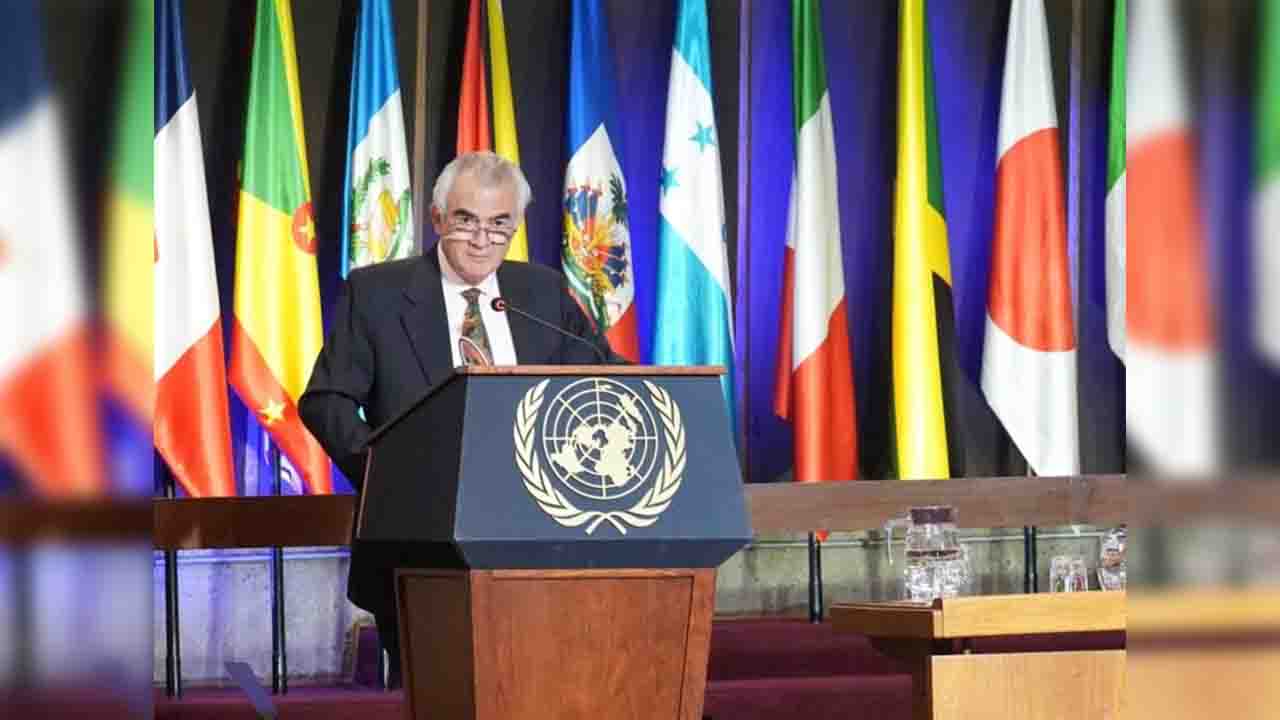Delegates convening at the CAF-ECLAC Annual Conference 2024 in Santiago, Chile, have passionately advocated for the scaling up and enhancement of productive development policies in Latin America and the Caribbean. The Economic Commission for Latin America and the Caribbean (ECLAC) emphasized the urgency of this endeavor, stating that such policies are integral to transforming the region’s development models and fostering inclusive, sustainable growth.
The conference, titled “The challenge of scaling up and improving productive development policies in Latin America and the Caribbean,” brought together high-level officials including Economy, Trade, and Industry Ministers, Deputy Ministers, senior executives, and experts from regional and multilateral organizations. It served as a platform for deep reflection and discussion on crafting a comprehensive regional agenda for productive development policies.
José Manuel Salazar-Xirinachs, ECLAC’s executive secretary, and Sergio Díaz-Granados, the executive president of CAF-Development Bank of Latin America and the Caribbean, inaugurated the meeting. Salazar-Xirinachs highlighted the region’s struggle with a prolonged low-growth syndrome and emphasized the need for inclusive, sustainable growth that creates quality jobs, reduces poverty, and addresses environmental concerns. He stressed the importance of productive development policies in steering economic transformation towards more inclusive and sustainable patterns.
Díaz-Granados echoed these sentiments, emphasizing the pressing need to overcome low productivity levels hindering the region’s progress towards poverty reduction, equality, and overall well-being. Both leaders underscored the significance of collaborative efforts in supporting the region’s transition towards sustainable development.
Throughout the conference, discussions revolved around key themes such as institutional capacity building, technological advancement, financing mechanisms, support for small producers, and tax incentives. Participants emphasized the importance of addressing these issues to reverse productivity stagnation and enhance the well-being of all individuals in the region.
Specific sessions delved into various aspects of productive development policies, including the role of development banking, territorial approaches, cluster initiatives, human capital development, and opportunities for collaboration between governments, the private sector, development banks, and other stakeholders. The aim was to identify actionable strategies for scaling up and improving productive development policies across the region.
At the core of the discussions, participants acknowledged that productive development policies play a pivotal role as a versatile toolkit for steering economic growth along more inclusive and sustainable paths. This recognition underscores the understanding that strategic investments in various sectors can drive higher and more sustained growth, while simultaneously addressing pressing social and environmental concerns.
One key aspect highlighted was the importance of investing in renewable energy sources. By transitioning towards renewable energy, such as solar, wind, and hydroelectric power, countries in the region can reduce their reliance on fossil fuels, mitigate greenhouse gas emissions, and foster a cleaner, more sustainable energy landscape. This not only contributes to environmental preservation but also creates opportunities for innovation and job creation in the renewable energy sector.
Another critical area of focus was electromobility. By promoting the adoption of electric vehicles and investing in infrastructure to support them, countries can reduce air pollution, decrease dependence on imported fossil fuels, and promote technological innovation in the transportation sector. Furthermore, discussions emphasized the importance of embracing the circular economy model. By minimizing waste generation, promoting resource efficiency, and prioritizing recycling and reuse, countries can reduce their environmental footprint and create a more sustainable approach to production and consumption.
The conference concluded with a renewed commitment to fostering collaboration and implementing concrete measures to advance productive development agendas in Latin America and the Caribbean. It underscored the importance of shared responsibility among governments, private sector entities, development banks, and civil society in driving meaningful change and unlocking the region’s full potential.








